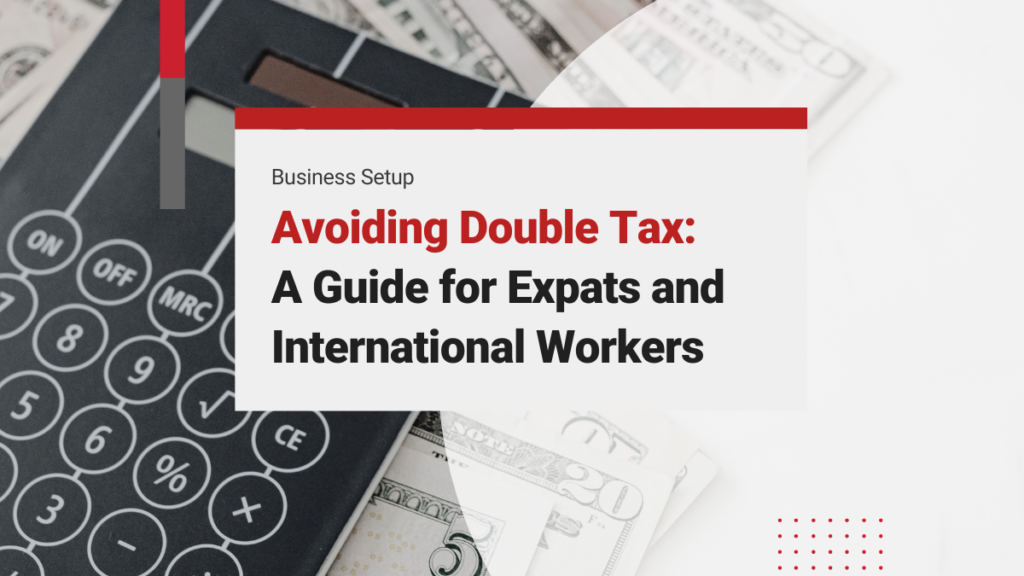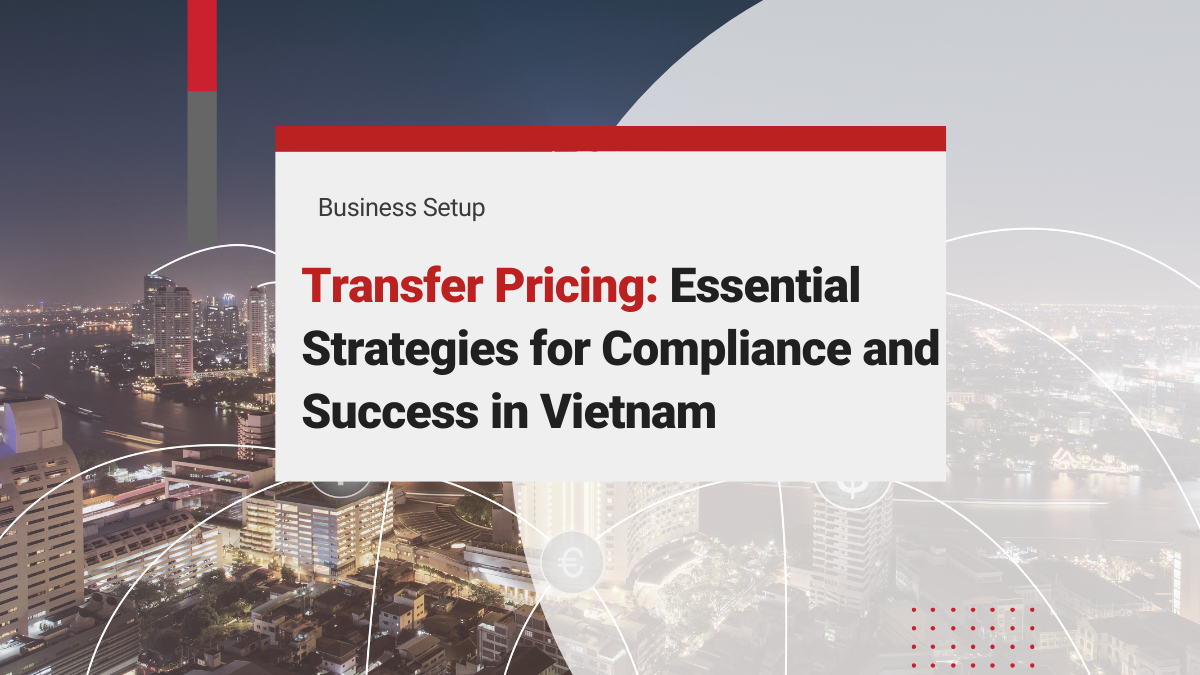For foreigners living and working in Vietnam, understanding the local tax landscape is not just a legal requirement—it is a crucial aspect of financial planning. This guide outlines the key tax obligations that apply to foreigners in Vietnam, with a special focus on Personal Income Tax (PIT) and the important role of Double Tax Avoidance Agreements (DTAs).
Need help with Double Tax in Vietnam? Check out InCorp Vietnam’s Tax Advisory Services
Who Needs to Comply?
Tax obligations in Vietnam apply to all foreigners generating income within the country, regardless of whether they receive a salary or earn through other means. The tax framework distinguishes between:
- Tax Residents: Individuals staying in Vietnam for 183 days or more within either a calendar year or 12 months from their arrival date. These residents are subject to progressive tax rates ranging from 5% to 35% on their worldwide income.
- Non-Tax Residents: Those staying less than 183 days, are subject to a flat 20% tax rate on their Vietnam-sourced income.
Read More: Personal Income Tax (PIT) for Foreigners in Vietnam: Your Simplified Guide to Compliance and Savings
Understanding Double Taxation Agreements
A cornerstone of Vietnam’s international tax framework is its extensive network of Double Taxation Agreements (DTAs). As of 2024, Vietnam maintains DTAs with approximately 80 countries and territories, making this understanding crucial for foreign investors and expatriates. These agreements serve multiple purposes:
- Eliminating or reducing the burden of double taxation
- Providing clear frameworks for tax liability allocation between countries
- Enhancing Vietnam’s attractiveness for foreign investment
- Facilitating international trade and cross-border business activities
The significance of DTAs cannot be overstated in today’s globalized economy. Based on OECD Model Tax Convention principles, these agreements establish clear guidelines for:
- Determining tax residency status
- Defining various categories of taxable income
- Setting provisions for dispute resolution
- Offering potential tax relief through exemptions or reduced rates
Why Understanding These Regulations Matters?
Compliance with Vietnamese tax regulations is essential for several reasons:
- Legal Compliance: Violations of tax regulations can result in penalties and legal complications that may affect your ability to continue working or doing business in Vietnam.
- Financial Planning: Understanding your tax obligations helps you plan better, especially given Vietnam’s significant allowable deductions.
- Investment Benefits: Knowledge of DTAs can help you optimize your tax position and avoid unnecessary double taxation on your international income.
- Business Operations: For those running businesses or investing in Vietnam, understanding tax implications is crucial for making informed business structure and operations decisions.
Do Foreigners Without Salaries Need to Pay Taxes?
Foreigners without employment income in Vietnam may still need to pay taxes if they receive other forms of taxable income as defined by Vietnamese tax regulations. Even without salary income, foreigners are subject to Personal Income Tax (PIT) on various types of income.
These include business income when yearly revenue exceeds VND 100 million, investment income such as interest or dividends (except deposit interest from banks and credit institutions), and earnings from capital transfers through share exchanges or other forms. They must also pay taxes on income from real estate transactions unless it is their only property or a transfer between family members.
Additionally, foreigners must pay taxes on prize winnings, income from copyright or royalties, earnings from franchising, and any inheritances or gifts in the form of stocks, capital contributions, real estate, or other assets that require registration of ownership or use rights. This comprehensive taxation framework ensures that all significant forms of income are properly regulated and taxed, regardless of the individual’s employment status.
However, Vietnamese tax law does provide several exemptions. Foreigners, like Vietnamese citizens, are not required to pay taxes on overseas remittances, interest earned from life insurance contracts, or compensation received under life or non-life insurance contracts.
Income from agricultural activities such as salt-making, cultivation, forestry, or fisheries is also exempt. The law specifically exempts income from real estate transfers between family members and from the transfer of a single residential house or land plot.
For tax calculation purposes, any taxable income received in foreign currency must be converted to Vietnamese Dong. This conversion should use the average trading exchange rate from the inter-bank foreign currency market as published by the State Bank of Vietnam on the date the income was received. This requirement ensures consistent and fair taxation regardless of the currency in which income is originally received.
It is worth noting that following Circular 59/2015/TT-BLDTBXH from late 2015, while this primarily affects employment income, it demonstrates Vietnam’s evolving tax framework that takes into account various forms of compensation and benefits. This comprehensive approach to taxation applies to all individuals, including foreigners, ensuring that all significant sources of income are properly accounted for in the tax system.
Read More: Simplifying Personal Income Tax (PIT) in Vietnam: An Infographic Guide
Tax Residency Status & Applicable Tax Rates in Vietnam
Vietnam’s income tax (PIT) system distinguishes between tax residents and non-residents, with different tax implications for each status:
- Tax Residents: Subject to PIT on worldwide taxable income, regardless of where it is paid or received
- Non-Residents: Subject to PIT only on Vietnam-sourced income, with consideration given to applicable double taxation agreements (DTAs)
Tax Rates for Residents
1. Employment Income (Progressive Tax Rates)
| Annual Income (million VND) | Monthly Income (million VND) | Tax Rate (%) |
| 0 to 60 | 0 to 5 | 5 |
| 60 to 120 | 5 to 10 | 10 |
| 120 to 216 | 10 to 18 | 15 |
| 216 to 384 | 18 to 32 | 20 |
| 384 to 624 | 32 to 52 | 25 |
| 624 to 960 | 52 to 80 | 30 |
| More than 960 | More than 80 | 35 |
2. Business Income Rates
Individuals earning business income below VND 100 million per calendar year are exempt from PIT.
| Type of Business Activity | Tax Rate (%) |
| Distribution and supply of goods | 0.5 |
| Services, construction without raw materials | 2.0 |
| Lease of assets | 5.0 |
| Production, transport, services with goods, construction including raw materials | 1.5 |
| Other business operations | 1.0 |
3. Other Income Types for Residents
| Income Type | Tax Rate |
| Interest/dividends (excluding bank interest) | 5% |
| Sale of shares | 0.1% of sales proceeds |
| Capital assignment | 20% on net gain |
| Sale of real estate | 2% of sales proceeds |
| Franchising/royalties | 5% |
| Inheritances/gifts/winning prizes (excluding casino) | 10% |
Tax Rates for Non-Residents
| Income Type | Tax Rate |
| Employment income | 20% |
| Business income | 1-5% (varies by type) |
| Interest/dividends (excluding bank interest) | 5% |
| Sale of shares/capital assignment | 0.1% of sales proceeds |
| Sale of real estate | 2% of sales proceeds |
| Royalties/franchising/copyrights | 5% |
| Inheritances/gifts/winning prizes (excluding casino) | 10% |
Tax Residency Status
A person is considered a tax resident if they are:
- Present in Vietnam for 183 days or more, or
- Have a permanent residence in Vietnam
The residency status significantly impacts tax obligations in two main ways:
Income Tax Rates
- Residents:
- Subject to progressive tax rates from 5% to 35%
- The tax applies to worldwide income (both Vietnam and foreign-sourced)
- Eligible for personal deductions
- Non-residents:
- Fixed 20% tax rate on Vietnam-sourced salary/wages
- Only taxed on income generated within Vietnam
- Not eligible for personal deductions
How to Avoid Double Taxation (DTA – Double Taxation Agreements)?

Double Taxation Agreements (DTAs) are crucial international treaties designed to prevent the same income or property from being taxed twice. These agreements, signed between the two countries, aim to foster economic cooperation and ensure fair taxation for individuals and businesses operating internationally. Vietnam has actively pursued DTAs to encourage cross-border activity and provide clarity for taxpayers.
Beyond bilateral agreements, Vietnam participates in multilateral tax arrangements like the ASEAN-China Free Trade Agreement (ACFTA). The ACFTA Decree 118/2022/ND-CP, effective December 30, 2022, reinforces preferential import duty commitments under the ACFTA for 2022-2027. Vietnam is also committed to international tax standards, notably measures against Base Erosion and Profit Shifting (BEPS) through its involvement in the Global BEPS Forum.
Read More: The Definitive Guide to Vietnam’s 17 Active Free Trade Agreements – FTAs
Vietnam’s Double Taxation Avoidance Agreements:
| No | Contracting Country 1 | Contracting Country 2 | Link Download |
| No.1 | Vietnam | China | Link |
| No.2 | Vietnam | Russia | Link |
| No.3 | Vietnam | India | Link |
| No.4 | Vietnam | South Korea | Link |
| No.5 | Vietnam | United States of America | Link |
| No.6 | Vietnam | Japan | Link |
| No.7 | Vietnam | Australia | Link |
| No.8 | Vietnam | The Kingdom of Spain | Link |
| No.9 | Vietnam | The United Kingdom of Great Britain and Northern Ireland | Link |
| No.10 | Vietnam | Thailand | Link |
| No.11 | Vietnam | Indonesia | Link |
| No.12 | Vietnam | Singapore | Link |
| No.13 | Vietnam | France | Link |
Methods to Avoid Double Taxation:
Vietnam employs one or a combination of three methods to mitigate double taxation, as outlined in its treaties:
- Tax Deduction Method: Vietnamese residents whose income is taxed in another treaty country can deduct the tax paid from their Vietnamese tax liability.
- Fixed Tax Deduction Method: For Vietnamese residents with income taxed abroad, a fixed tax amount is deducted from their Vietnamese tax liability.
- Indirect Tax Credit Method: Vietnamese residents receiving income from a company in the other treaty country can deduct indirect taxes paid in that country from their Vietnamese tax liability. This deduction is capped at the amount of tax owed in Vietnam. If a treaty does not address indirect tax credits, but Vietnamese law does, the domestic law will apply.
Read Related: VAT Refund Vietnam for Foreigners: A Guide to How to Claim VAT and Tax Relief
How DTAs Work?
In Vietnam, DTAs impact both corporate and personal income tax. They are applied as follows:
- DTAs supersede domestic tax laws when a direct conflict arises.
- Domestic tax laws prevail when the relevant tax obligations in the DTA do not exist in Vietnam, or when the DTA tax rates exceed domestic rates. For instance, if the other country imposes a tax Vietnam does not recognize, Vietnam’s tax laws will apply.
- DTAs do not affect the rights and immunities of diplomatic and consular missions, as protected by international treaties to which Vietnam is a signatory.
Utilizing DTAs Effectively
DTAs between Vietnam and ASEAN member states offer a valuable mechanism to reduce or eliminate double taxation for individuals and businesses engaged in cross-border activities. However, simply knowing these agreements exist is insufficient. A strategic approach is essential to maximize their benefits.
Understanding the DTA Landscape
The first step is identifying the relevant DTA. This depends on your residency status and the source of your income. Vietnam and the respective ASEAN countries should provide information on their DTAs. Reviewing the DTA text is crucial, though the legal language can be complex. Consulting a tax professional specializing in Vietnamese tax law and DTAs is highly recommended to interpret the provisions relevant to your situation.
Claiming Treaty Benefits
Claiming treaty benefits might require gathering documentation like residency certificates, tax residency certificates, or contracts detailing your income. Some DTAs offer exemptions from specific taxes or reduced withholding tax rates. The application process may involve submitting documentation to Vietnamese tax authorities. A tax professional can guide you through the correct procedures.
Even with treaty benefits, filing tax returns in both Vietnam and the relevant ASEAN countries is essential. However, you may be able to claim tax credits for taxes paid in the other country.
Optimizing Tax Efficiency with Professional Guidance
Understanding residency rules is critical, as DTAs often have specific criteria. A tax professional can clarify these rules and ensure proper classification to maximize treaty benefits. DTAs often include anti-abuse clauses. A tax professional can help structure your cross-border activities to comply with these clauses and optimize tax efficiency.
Staying updated on DTA changes is also important. Consulting a tax professional ensures you are aware of any revisions that may affect your eligibility.
Benefits Realized
Effectively using DTAs offers numerous advantages, including a reduced tax burden, simplified compliance, and enhanced investment opportunities. DTAs can lower tax liabilities, especially for cross-border income. Understanding DTAs also streamlines Vietnamese tax filing and makes cross-border ventures within ASEAN more attractive.
Penalties for Non-compliance
a. Penalties for Late Tax Filing
As outlined in Article 13 of Decree 125/2020/ND-CP, individuals who fail to file their personal income tax returns on time may face the following consequences:
- Warning for Minor Delays: If the tax return is submitted 1-5 days late and there are mitigating circumstances, a warning may be issued.
- Monetary Fines: For longer delays, fines ranging from 2 to 25 million VND can be imposed, depending on the length of the delay.
In addition to these penalties, taxpayers must pay the full amount of tax due, along with any late payment fees.
b. Importance of Timely and Accurate Tax Filing
Filing taxes on time and accurately is crucial for several reasons. It ensures compliance with legal requirements, helps avoid penalties and interest charges for late payments, and reduces the risk of tax audits. Additionally, timely tax filing contributes to maintaining financial credibility and supports the national budget, which funds essential public services and socio-economic development.
How InCorp Vietnam Can Assist?
Double Taxation Agreements (DTAs) represent fundamental instruments in international commerce, serving as essential frameworks that prevent duplicate taxation across jurisdictions. As Vietnam continues to strengthen its position in the global economy, these agreements have become indispensable for foreign investors and Vietnamese residents engaged in international business activities.
For international enterprises and individuals operating in Vietnam’s market, proper implementation of DTAs can significantly influence tax efficiency and compliance. Success in this area depends on strategic planning, comprehensive documentation, and expert guidance to maximize the benefits these agreements provide.
InCorp Vietnam offers specialized expertise in Double Taxation Agreements. Our professional team provides comprehensive guidance for optimizing your international tax strategy and ensuring compliance with Vietnam’s extensive network of DTAs.

clients worldwide

professional staff

incorporated entities in 10 years

compliance transactions yearly
Learn the Right Setup for Business
Expansion in the Vietnam
Frequently Asked Questions
Do Vietnamese Pay Taxes
- Yes, Vietnamese citizens and businesses are required to pay taxes. These include personal income tax, corporate income tax, value-added tax (VAT), and other applicable taxes as regulated by the government.
Does Vietnam Have Taxes
- Yes, Vietnam has a tax system that includes personal income tax, corporate income tax, value-added tax (VAT), and other taxes. These are administered by the General Department of Taxation under the Ministry of Finance.






